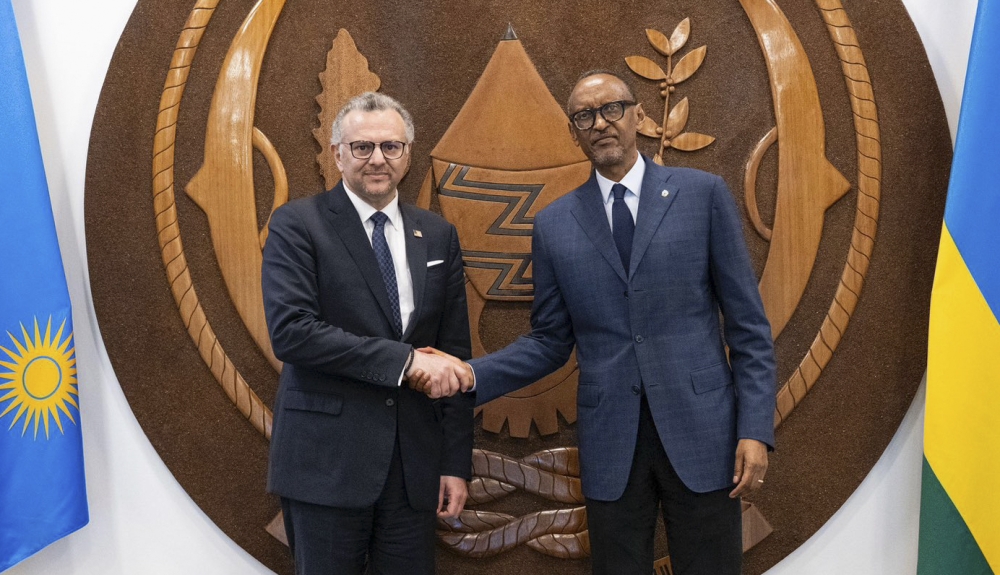The United States government on Monday, May 5, said he had received the draft of a peace agreement between Rwanda and DR Congo, as Washington mediates efforts to resolve the ongoing conflict in eastern DR Congo.
This comes after Ambassador Olivier Nduhungirehe, the Minister of Foreign Affairs and International Cooperation, told the national broadcaster RBA on Sunday that Rwanda had to the draft peace agreement, whose declaration of principles was signed in Washington on April 25.
“I welcome the draft text on a peace proposal received from both DR Congo and Rwanda,” Massad Boulos, US President Donald Trump’s Senior Advisor for Africa, said in a Monday post on X.
“This is an important step toward fulfilling the commitments made in the Declaration of Principles, and I count on their continued commitment to achieving peace,” said Boulos.
The peace agreement is expected to be inked in June by President Paul Kagame and his Congolese counterpart Félix Tshisekedi, with US President Donald Trump in attendance at the White House.
Nduhungirehe said that Rwanda provided inputs and contributions to this draft which will be negotiated by experts in the coming days and a second ministerial meeting expected to be held in Washington in the third week of May.
From there, he said, that the peace agreement will be finalised and submitted to the Heads of State in mid-June for signing.
The signing ceremony will also be attended by leaders of countries that acted as mediators in the crisis, including the Presidents William Ruto of Kenya, Emmerson Mnangagwa of Zimbabwe, Faure Gnassingbé of Togo, who is the African Union-appointed mediator, and the Emir of Qatar, Sheikh Tamim ibn Hamad Al Thani.
In addition to the peace deal, the two countries are expected to sign separate bilateral economic agreements with the US government.
Rwandan and Congolese foreign ministers signed the Declaration of Principles on April 25, marking the beginning of a peace process aimed at restoring stability not only to eastern DRC but also to the broader Great Lakes region, which has long suffered from the spill-over of the conflict.
In the declaration, both sides reaffirmed their respect for each other’s sovereignty and territorial integrity and committed to resolving disputes through diplomacy and dialogue.
Before the agreement is signed, the US has emphasized that both parties must first meet several preconditions. Among them, the DRC must fully address internal security challenges and Rwanda’s security concerns, including disbanding the genocidal FDLR.
In addition, DR Congo is expected to implement internal governance reforms, including ensuring fair distribution of national resources across its regions.
Nduhungirehe emphasised that security issues remain paramount and there is no shortcut to peace, noting that both parties recognized the security concerns of each other during the declaration of principles.
“We agreed in that document to deploy a joint security mechanism that would help us in addressing those concerns because we have been dealing with a security threat for the past 30 years — the FDLR genocidal force that is still operating in eastern DR Congo and is embedded in the Congolese army,” the minister said.
“We hope that with this new momentum for peace, we will be able to really address this issue of FDLR.”
A monitoring committee, including representatives from the U.S., Qatar, France, and Togo will oversee the implementation of these conditions.
Negotiations previously conducted under the EAC-SADC framework have now been formally placed under the leadership of the African Union, with Togo taking the lead in facilitating the process going forward.



